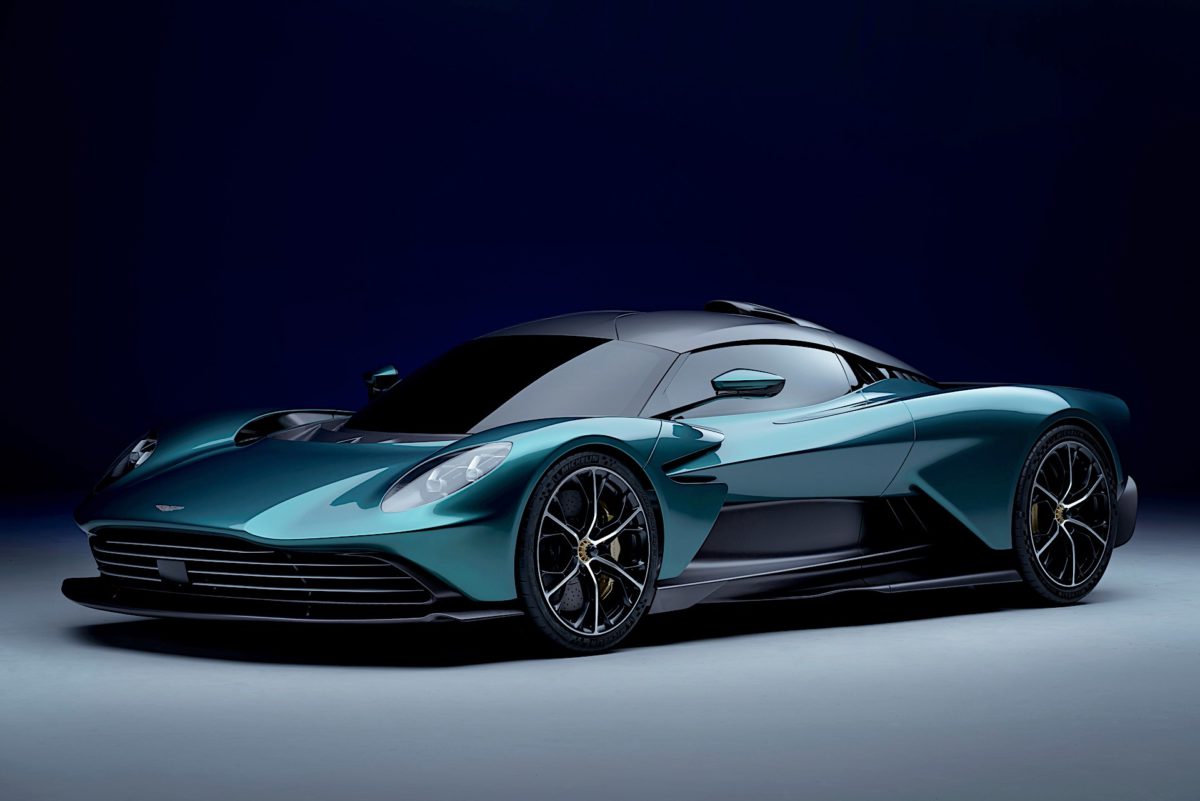Aston Martin has unveiled its plans to become an all-electric brand by 2030. Called Racing. Green., the initiative is aligned with the UN Sustainable Development Goals and will set bold targets across Aston Martin’s operations. In addition to addressing climate change and creating a better environment, the strategy also aims to build a stronger, more diverse, and more inclusive company. Aston Martin is also the latest to commit to addressing environmental issues through its membership in the Science-Based Targets initiative (SBTi), the global body helping companies set emissions reduction goals based on climate science.
The Racing. Green. plan will see Aston Martin target net-zero emissions from its manufacturing facilities by 2030. It will also reduce supply chain emissions by 30% versus the 2020 baseline and aims to cut it all by 2039. Aston Martin already cut its emissions by 44% in its operations in the United Kingdom. Since 2019, the company’s manufacturing sites have been using 100% renewable energy. The St. Athan facility in Wales will get 14,000 solar panels to deliver 20% of the energy it needs. Aston Martin has already redirected 100% of waste out of landfills and aims to cut all plastic waste within the next three years. Water consumption will also be reduced by 15%. The use of sustainable materials will also be maximized and enhance biodiversity in all of its sites.
Aston Martin: Fully electric lineup by 2030
“Aston Martin is accelerating. We are transforming our business and believe that now is the time to challenge ourselves to make a bigger difference, to become a world-leading sustainable ultra-luxury business,” said Tobias Moers, CEO of Aston Martin Lagonda. “Whilst embracing electrification, we believe our sustainability ambitions must be broader than just producing emissions-free vehicles, and want to drive sustainability principles across our entire business, with a team representative of society proudly producing responsible products with a reduced environmental impact and making a positive contribution to the communities where we operate.”
On the product side, sustainability principles will play a key role in the development of Aston Martin’s future product strategy as it finds alternatives to the internal combustion engine. The first electrified will be the Valhalla, a plug-in hybrid carbon fiber supercar with 950 hp and a top speed of 217 mph. Deliveries of that vehicle start in 2024. Aston Martin’s first battery-electric vehicle will debut in 2025. From 2026 onward, every model in the brand’s lineup will have an electrified option before going all-electric in 2030.
Aston Martin is exploring the use of renewable materials for its vehicles. Materials like green aluminum made using 100% renewable energy and leather-free interiors will be utilized to cut the environmental impact of vehicles while giving customers more options. The company is also aiming to put women in 25% of leadership roles as part of its diversity, equality, and inclusion strategy.
A Board Sustainability Committee chaired by Non-Executive Director Dr. Anne Stevens will oversee the Racing. Green. Plan and progress towards its goals.
Currently, Aston Martin only has the Valkyrie, a limited-edition hypercar with 1,160 hp as its only electrified vehicle. The Valhalla is the second and could be among the last of the plug-in hybrids alongside the long-rumored DBX Hybrid. Moers revealed last year that the successors to the DB11 and Vantage will be fully electric, which is right in line with the Racing. Green. Plan.
